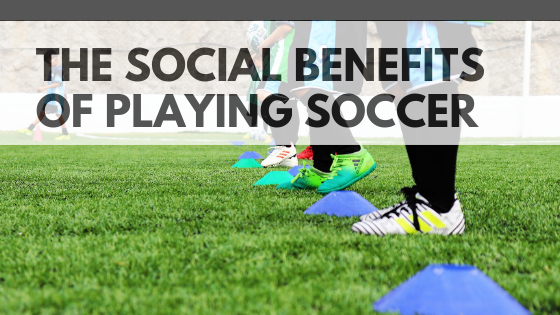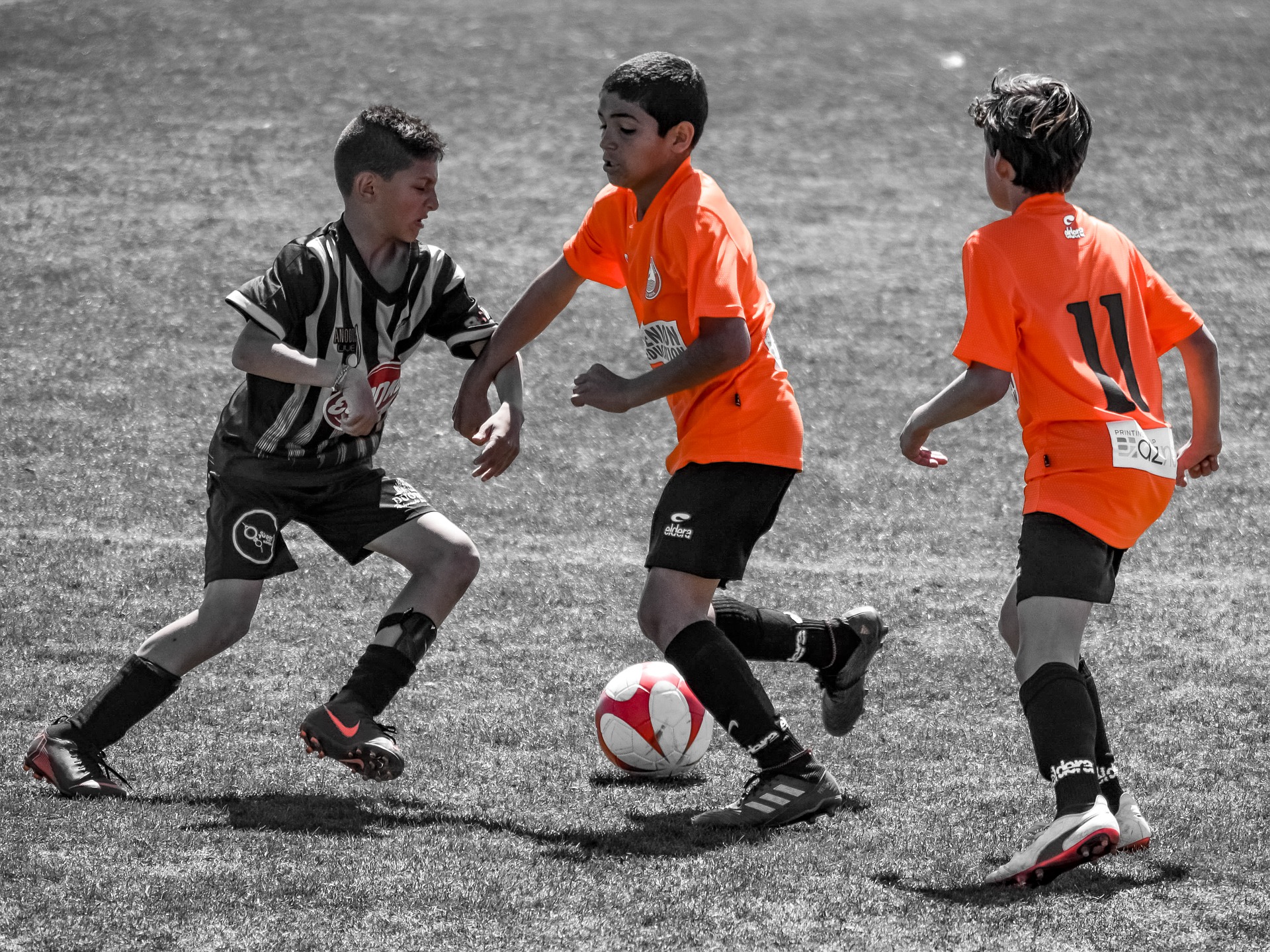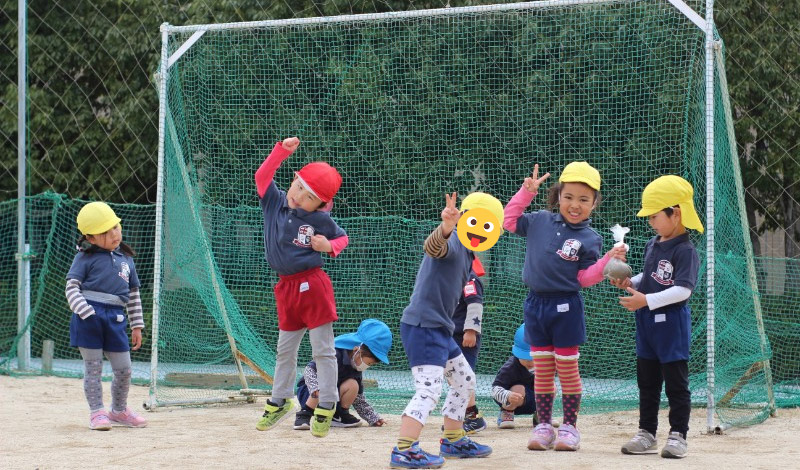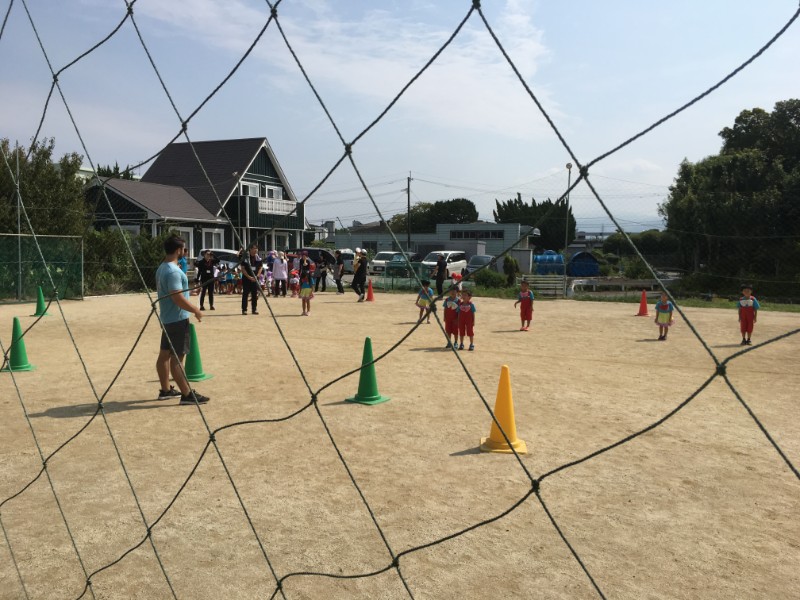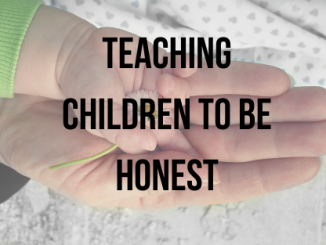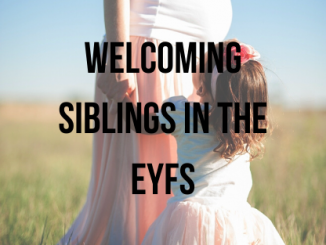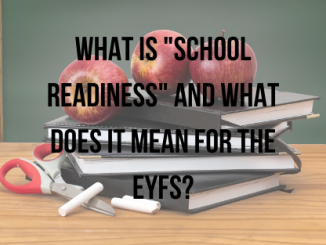Personal, Social and Emotional Development are some of the ‘Prime’ areas of the EYFS, meaning that it is considered foundational to other types of learning. Social skills are highly prized in society, and necessary throughout life.
Many employers are now focusing more on what employees can bring to a team other than what qualifications they possess, with group assessments forming part of many interview processes. The EYFS too places great emphasis on co-operation, playing and working together, and social function.
Teamwork and co-operation
Perhaps the most obvious benefit of soccer (football) is that it is a sport that is played as a team. Developing the skills required to work as part of a team will have immense benefits to young children on and off the pitch.
Understanding that their actions have an effect on others, responding to what others are saying or doing and building an awareness that, as humans, we need each other are invaluable pieces of learning that can occur through playing soccer.
For example, children must learn that they cannot keep the ball all to themselves, they must look and listen for their teammates to signal that they are free and pass the ball in order to meet a group aim. These are steep learning curves for children, but can be taught effectively through team sport such as soccer.
The PSE Early Learning Goals state: “Children play co-operatively, taking turns with others. They take account of one another’s ideas about how to organise their activity. They show sensitivity to others’ needs and feelings, and form positive relationships with adults and other children.” And “They work as part of a group or class, and understand and follow the rules,” it is fairly easy to see how these might be achieved on the soccer pitch!
As well as learning to co-operate to achieve a common aim, Ullrich-French and Smith (2006) suggest that the physical domain is an ideal context for developing a deeper understanding of peer relationships in general, with sport seeming to support pro-social skills across the board.
Conflict management
Soccer is, by its very nature, competitive; teams compete against one another and at some level, there is always conflict. It may be a disagreement with a decision by the referee, a difference of opinion on your team’s tactics or merely losing the game; many situations that occur in soccer represent some level of conflict.
Learning to deal with these situations appropriately, and move on from them positively is a huge opportunity to learn to manage feelings and behaviour and to develop resilience.
Langbein and Bess (2002) analysed school records and found that schools with interscholastic sports programmes have fewer disturbances (fighting, disciplinary issues, anti-social behaviour) and higher levels of cooperation and pro-social behaviour.
Good sportsmanship
Soccer is a sport that values good sportsmanship, playing fairly and by the rules and accepting defeat with grace. These values are extremely hard for young children who love to win (and indeed for some famous soccer players!) but the opportunity to develop these characteristics are almost unrivalled. The shaking of hands, and congratulating the winning team, after matches is an important part of soccer and the sport highlights these values to children.
Respecting the rules
As part of learning to play fairly, and by the rules, Soccer teaches children to respect authorities such as the coach and the referee and in doing this teaches respect for the ‘Rule of Law’. When inspecting Early Years settings in the UK Ofsted look for how that setting is promoting Fundamental British Values, that is; values that all citizens of the UK should share, with young children. One of the named British Values is Respecting the Rule of Law, so soccer fits extremely well with promoting this value. Whilst named as a British Value, this is probably something that most countries would highlight as a desirable value for its citizens so this is a useful skill to learn no matter where in the world your child’s early years teaching is based.
Empathy
Managing your own emotions is an important part of soccer, with players experiencing the highs of scoring a goal, winning a match, coming back from behind and the lows of injury, being sent off, own goals and defeat. Emotion plays an important role in soccer and in experiencing a wide range of emotions young children can develop empathy for others, knowing how it feels to be in their position. This emotional literacy is invaluable throughout life.
Social capital
One of the amazing things about soccer is that wherever you go in the world you see children playing it; whether in organised clubs, or just kicking a ball about on the street, the sport seems to be universal! For children, learning to play soccer gives them the opportunity to play across cultural and language barriers.
As adults travelling, soccer seems to unite people by giving an easy conversation starter and usually some friendly banter. It is a social lubricant, with some of the premiership teams known and supported worldwide. Children who learn to play soccer often find themselves immersed in these friendly rivalries from a young age, giving them an easy conversational ‘in’ to talk with people of all ages.
References:
Langbein, L. and Bess, R. (2002) Sports in School: Source of Amity or Antipathy?, in: Social Science Quarterly, vol. 83 issue 2
Ullrich-French, S. and Smith, A. (2006) Perceptions of relationships with parents and peers in youth sport: Independent and combined prediction of motivational outcomes, in: Psychology of Sport and Exercise 7(2):193-214

